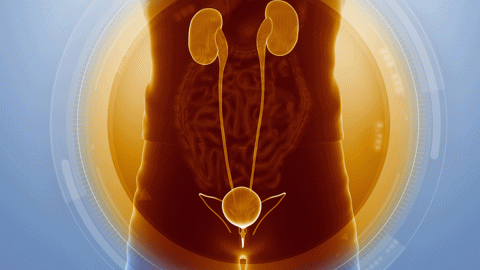Read through our frequently asked questions on incontinence and check if they hold some of the answers you're looking for
How do I make sure I’m doing my exercises right?
You could try placing your finger on your perineum (the area between your vagina or penis and back passage). As you squeeze your pelvic floor muscles you may be able to feel a squeeze or tightening of your pelvic floor muscles.
If you are still struggling ask your GP to refer you to a specialist physiotherapist for help.
I’ve been doing my exercises for a few months but there is no change in my incontinence. When will I see an improvement?
Doing pelvic floor muscles exercises correctly and the right amount is important for seeing improvement to your symptoms. If you are still having problems it is a good idea to see a specialist physiotherapist for an assessment to ensure you are doing them correctly.
Why do I get pain when I do my exercises?
Try doing some strong, fast squeezes first to encourage blood flow to the pelvic floor muscles. It is also important to make sure that you fully relax your pelvic floor muscles between each squeeze that you do to prevent them getting over tired or tense.
Can I drink decaffeinated drinks?
Yes, you can try decaffeinated drinks. There is a reduced amount of caffeine in decaffeinated drinks but having too many of these drinks may still make your symptoms worse.
Can I still do to the gym with incontinence?
It is really good to participate in some regular exercise to maintain a healthy weight and good level of fitness. There are some forms of exercise that may make it more difficult to improve your pelvic floor muscles so these should be avoided or carried out with caution.
Lifting heavy weights, high impact exercise or HIIT training, sit ups and plank exercises are an example of exercises to avoid.
What exercises work well for incontinence?
Some forms of general exercise can be very beneficial for continence. These are generally lower impact exercise such as walking, swimming and Pilates.
It is a good idea to seek advice from a specialist physiotherapist or personal trainer who is experienced in treating patients with incontinence problems, to ensure that what you are doing will be helpful to improving your incontinence.
Can I use stimulation machines/ vaginal weights?
Continence stimulators / devices can be beneficial to try to improve very weak muscles however there are several situations when you shouldn’t use them. For example, do not use a continence stimulator whilst you are pregnant or immediately after birth (for the first six weeks). If you have had a recent positive smear test and are still having yearly checks it is advisable to speak to your doctor or physiotherapist first before using a continence stimulator.
Do not use a continence stimulator if you have:
- a pacemaker,
- any metal implants near to your lower back, hips or pelvis,
- uncontrolled epilepsy
- or any vaginal / rectal infections.
There are also many other forms of device on the market. If you are unsure which the right one to help you is, you may want to speak to a specialist physiotherapist.
Will my incontinence get worse as I get older?
It is never too late to do your pelvic floor muscle exercises but it is easier to strengthen muscle when you are younger. If you can train your pelvic floor muscles to be as good as possible now this will help to prevent incontinence or worsening incontinence when you are older.



